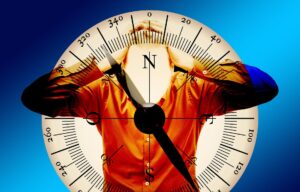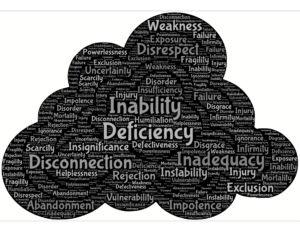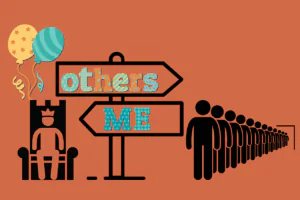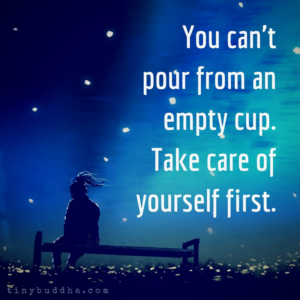Do you have difficulty paying attention, experience excessive restlessness, or become nervous easily? Then if you’re like many people, you may have been told you may have ADHD (Attention Deficit-Hyperactivity Disorder). On the other hand, you may have been told that you have Anxiety. Here’s the thing: you might have both. ADHD and Anxiety have some of the same symptoms. In addition, almost 50 percent of adults with ADHD also have anxiety disorder.
You might be wondering if ADHD can cause anxiety. In some cases, there’s an almost causal connection between the two. The nature of ADHD creates situations with a lot of uncertainty, which fuels Anxiety. For example, those with ADHD routinely misplace things like car keys. Not knowing where the keys are leads to uncertainty about being late – which leads to Anxiety.
In other cases, those with ADHD and Anxiety can experience the same symptoms, such as fidgeting and trouble concentrating, which are hallmarks of each disorder. And if ADHD and Anxiety Disorder occur together, these similar symptoms can affect and escalate each other when not managed well.
So it’s complicated. Clinicians must rule out Anxiety and other disorders when diagnosing ADHD, and vice versa. They have to grapple with what presenting symptoms are ADHD, Anxiety, and both. Before going further, let’s look at each disorder separately.
ADHD
According to the American Psychiatric Association, ”ADHD is one of the most common mental disorders affecting children. Symptoms of ADHD include inattention (not being able to keep focus), hyperactivity (excess movement that is not fitting to the setting) and impulsivity (hasty acts that occur in the moment without thought).” And ADHD doesn’t affect just children. According to the ADHD support group CHADD, up to 80 percent of those diagnosed with ADHD in childhood will continue to experience symptoms in adulthood.
ADHD comes in three different “types” or presentations:
- Inattentive – This type of ADHD refers to problems with staying on task, focusing and organization. You may have the predominantly inattentive type if you tend to be easily distracted. This leads to problems focusing, which in turn makes you prone to missing details. Your distraction cause others to perceive you as not being present. You probably dislike tasks requiring sustained mental effort. You may also miss deadlines, have messy and disorganized work product, and frequently lose things needed for daily life tasks.
- Hyperactive/Impulsive – The ADHD type focuses on excessive movement, whether that is fidgeting, not being still, needing to constantly talk, or having excessive energy. If you have the hyperactive/impulsive type, you may often seem like you’re being driven by a motor – always needing to be on the go. You may have difficulty waiting your turn, whether in activities or in conversation. You may even display intrusive behavior, not meaning to, such as taking over conversations or projects for others because it’s too difficult to be patient.
- Combined – This presentation of ADHD means that you are displaying enough of each type’s criteria to meet each diagnosis.
Related Reading: Executive Functioning and ADHD
Anxiety Disorder 
Anxiety refers to our mental and physiological response to a perceived risk or threat. Anxiety disorders, including social anxiety disorder, panic attacks, and post-traumatic stress disorder (PTSD), are characterized by constant feelings of worry and fear that interfere with daily life. Sometimes ADHD can cause anxiety because your worries are about how much or how little you’re able to get done. You’re anxious about or overwhelmed by your ADHD.
Uncertainty about how a task or event will play out is at the core of anxiety. Understanding “consistent inconsistency” is key to recognizing the persistent anxiety of living with ADHD. “Consistent inconsistency” describes the distrust and uncertainty that builds up inside of you after years of experiencing ADHD symptoms such as inattention overwhelm, memory lapses, and more.
Social Anxiety Disorder is one type of anxiety disorder. When a person has this disorder, everyday social interactions can cause significant distress, anxiety, and embarrassment. Having social anxiety disorder doesn’t always mean that you’re afraid to face people. However, it can impact how you think or act when interacting with others. You might worry about how others may perceive their actions, how other people may judge you, or how you would handle difficult situations when alone.
ADHD and Anxiety
I bring up Social Anxiety Disorder because it is one of the most common conditions that can coexist with ADHD. If your mental health professional assesses both ADHD and anxiety symptoms, they may diagnose you with ADHD, Social Anxiety Disorder, or both. The important thing to know is that when you have an accurate diagnosis, you’ll have a better chance to address social anxiety more effectively. If a co-existing conditions (comorbid is the medical term) are neglected, only part of your issues will be resolved. And that can lead to more problems arising such as panic attacks.
Impulsivity from ADHD may be a contributing factor to why you are afraid to attend social gatherings. Let’s say you’re invited to a party. The impulsivity can help at first. You immediately join, and the impulsivity combined with your outgoing and hyperactive personality help you push past your anxiety so you can socially interact with everyone at first. However, that underlying anxiety keep rearing its head. So you decide you need a couple of drinks to boost your self-confidence and reduce your anxiety. Since ADHD and alcohol don’t mix well, things may get out of control. This experience then makes you feel like you didn’t handle the social interactions well, which in turn makes you want to reject future social gatherings because you might feel overwhelmed again. It’s a vicious circle.
ADHD and Anxiety Treatment
Both ADHD and Anxiety are treated through medication and/or psychotherapy. Clinicians typically attempt to treat the most severe condition first. Sometimes treatment that focuses on one condition improves symptoms in both, depending on the individual. When you are treated for ADHD it can decrease your stress, improve your attention so you manage tasks better, and improve your ability to handle anxiety symptoms more easily. If your anxiety is a separate condition and not a symptom of ADHD, you may need to have both disorders treated at the same time.
Standard medications used for ADHD are stimulants. Your doctor won’t know how a medication will affect you until you take it. Know that anxiety is a common side effect of stimulants, so it’s possible that stimulants may make your anxiety symptoms worse. In that case, there are other non-stimulant medications that can be used.
Related Reading: Can Depression and Anxiety be Cured?
A therapist can help you learn better ways to cope with ADHD and Anxiety.
Some common coping mechanisms for ADHD and Anxiety that are used in addition to or instead of medications:
• Structure unstructured time – Create a routine using a calendar or planner and make sure that breaks are planned in your schedule.
• Exercise and movement – Movement can be its own form of meditation, allowing you to remove yourself from the situation and reset.
• Healthy Habits – Good exercise, sleep, and diet are effective at reducing overall stress.
• Specify tasks – Rather than vaguely defining activities, fill your calendar with task or time-based activities. Clearly laying out tasks helps combat perfectionism and becomes an easier way to engage in a task when you’re not “in the mood.”
• Organize physical spaces – Define where work, leisure, sleep, and other activities will be done in the home to help with habit formation. Combat “sight pollution” by resetting and preparing your spaces for the next day.
• Stay on ADHD medication and continue to attend therapy sessions if applicable.
• Lower expectations – Reframe tasks into partialized, doable terms and take on a mindset of being good enough. Being good enough is better than expecting to be perfect. The good enough mentality can put you in a less anxious state.
• De-catastrophize – Disengage from the inflexible “should” mindset where things are not ok if they don’t work out as they “should.” (See the previous bullet point!)
If you live in northern Illinois and are struggling with symptoms that could be ADHD, Anxiety, or both, therapists at Life Care Wellness are able to diagnose you accurately and work with you on an appropriate treatment plan. Please reach out to us in our Glen Ellyn, Chicago (Jefferson Park), Sycamore, or Yorkville locations.





